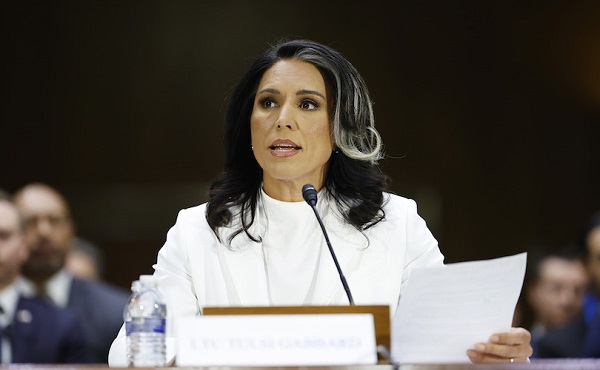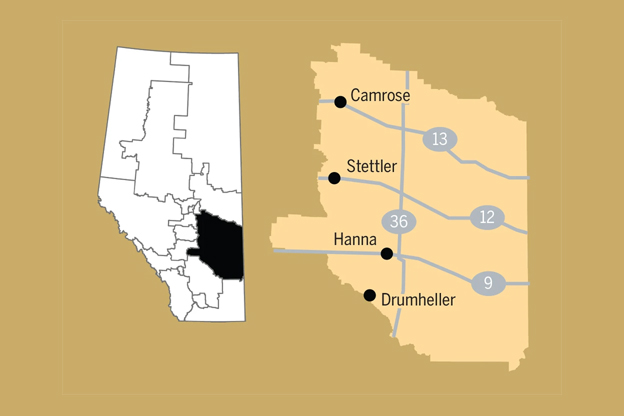Banks
Four of Canada’s top banks ditch UN-backed ‘net zero’ climate alliance
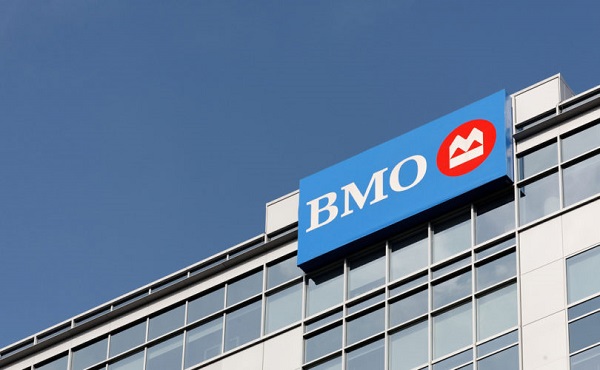
From LifeSiteNews
Among the banks that have withdrawn from the UN-backed Net-Zero Banking Alliance are TD Bank, the Bank of Montreal and CIBC.
In a stunning reversal, four of Canada’s top banks have withdrawn themselves from a United Nations “net zero” alliance that supports the eventual elimination of the nation’s oil and gas industry in the name of “climate change.”
Last Friday, Toronto-Dominion Bank (TD), Bank of Montreal (BMO), National Bank of Canada and the Canadian Imperial Bank of Commerce (CIBC) said they were all withdrawing from the Net-Zero Banking Alliance (NZBA), which calls for banks to come in line with the push for “Net Zero” emissions by 2050. The NZBA is a subgroup of the Glasgow Financial Alliance for Net Zero (GFANZ), which was founded and backed by the United Nations.
Interestingly, the GFANZ was formed in 2021, while Liberal Party leadership candidate Mark Carney was its co-chair. He resigned from his role in the alliance right before he announced he would run for Liberal leadership to replace Prime Minister Justin Trudeau last week.
The sudden decision from Canadian banks to ditch the alliance comes despite Trudeau’s government still being committed to so-called “net zero” policies and only a few days before pro-oil and gas U.S. President Donald Trump was sworn into office.
According to a statement from BMO, it is no longer a “member of the Net-Zero Banking Alliance (NZBA),” but it is still “committed” to the idea of an eventual “net zero” world.
“We are fully committed to our climate strategy and supporting our clients as their lead partner in the transition to a net-zero world. We have robust internal capabilities to implement relevant international standards, supporting our climate strategy and meeting our regulatory requirements,” it said.
In a statement regarding its exit from the NZBA, TD Bank said that it has the “resources, relationships and capabilities to continue to advance our strategy, deliver for our shareholders and advise our clients as they adapt their businesses and seize new opportunities.”
Large U.S. banks such as Morgan Stanley, JPMorgan Chase & Co, Wells Fargo and Bank of America have all withdrawn from the group as well.
Since taking office in 2015, the Trudeau government has continued to push a radical environmental agenda like the agendas being pushed by the World Economic Forum’s “Great Reset” and the United Nations’ “Sustainable Development Goals.” Part of this push includes the promotion of so called “Net Zero” energy by as early as 2035 nationwide.
Banks
TD Bank Account Closures Expose Chinese Hybrid Warfare Threat

From the Frontier Centre for Public Policy
Scott McGregor warns that Chinese hybrid warfare is no longer hypothetical—it’s unfolding in Canada now. TD Bank’s closure of CCP-linked accounts highlights the rising infiltration of financial interests. From cyberattacks to guanxi-driven influence, Canada’s institutions face a systemic threat. As banks sound the alarm, Ottawa dithers. McGregor calls for urgent, whole-of-society action before foreign interference further erodes our sovereignty.
Chinese hybrid warfare isn’t coming. It’s here. And Canada’s response has been dangerously complacent
The recent revelation by The Globe and Mail that TD Bank has closed accounts linked to pro-China groups—including those associated with former Liberal MP Han Dong—should not be dismissed as routine risk management. Rather, it is a visible sign of a much deeper and more insidious campaign: a hybrid war being waged by the Chinese Communist Party (CCP) across Canada’s political, economic and digital spheres.
TD Bank’s move—reportedly driven by “reputational risk” and concerns over foreign interference—marks a rare, public signal from the private sector. Politically exposed persons (PEPs), a term used in banking and intelligence circles to denote individuals vulnerable to corruption or manipulation, were reportedly among those flagged. When a leading Canadian bank takes action while the government remains hesitant, it suggests the threat is no longer theoretical. It is here.
Hybrid warfare refers to the use of non-military tools—such as cyberattacks, financial manipulation, political influence and disinformation—to erode a nation’s sovereignty and resilience from within. In The Mosaic Effect: How the Chinese Communist Party Started a Hybrid War in America’s Backyard, co-authored with Ina Mitchell, we detailed how the CCP has developed a complex and opaque architecture of influence within Canadian institutions. What we’re seeing now is the slow unravelling of that system, one bank record at a time.
Financial manipulation is a key component of this strategy. CCP-linked actors often use opaque payment systems—such as WeChat Pay, UnionPay or cryptocurrency—to move money outside traditional compliance structures. These platforms facilitate the unchecked flow of funds into Canadian sectors like real estate, academia and infrastructure, many of which are tied to national security and economic competitiveness.
Layered into this is China’s corporate-social credit system. While framed as a financial scoring tool, it also functions as a mechanism of political control, compelling Chinese firms and individuals—even abroad—to align with party objectives. In this context, there is no such thing as a genuinely independent Chinese company.
Complementing these structural tools is guanxi—a Chinese system of interpersonal networks and mutual obligations. Though rooted in trust, guanxi can be repurposed to quietly influence decision-makers, bypass oversight and secure insider deals. In the wrong hands, it becomes an informal channel of foreign control.
Meanwhile, Canada continues to face escalating cyberattacks linked to the Chinese state. These operations have targeted government agencies and private firms, stealing sensitive data, compromising infrastructure and undermining public confidence. These are not isolated intrusions—they are part of a broader effort to weaken Canada’s digital, economic and democratic institutions.
The TD Bank decision should be seen as a bellwether. Financial institutions are increasingly on the front lines of this undeclared conflict. Their actions raise an urgent question: if private-sector actors recognize the risk, why hasn’t the federal government acted more decisively?
The issue of Chinese interference has made headlines in recent years, from allegations of election meddling to intimidation of diaspora communities. TD’s decision adds a new financial layer to this growing concern.
Canada cannot afford to respond with fragmented, reactive policies. What’s needed is a whole-of-society response: new legislation to address foreign interference, strengthened compliance frameworks in finance and technology, and a clear-eyed recognition that hybrid warfare is already being waged on Canadian soil.
The CCP’s strategy is long-term, multidimensional and calculated. It blends political leverage, economic subversion, transnational organized crime and cyber operations. Canada must respond with equal sophistication, coordination and resolve.
The mosaic of influence isn’t forming. It’s already here. Recognizing the full picture is no longer optional. Canadians must demand transparency, accountability and action before more of our institutions fall under foreign control.
Scott McGregor is a defence and intelligence veteran, co-author of The Mosaic Effect: How the Chinese Communist Party Started a Hybrid War in America’s Backyard, and the managing partner of Close Hold Intelligence Consulting Ltd. He is a senior security adviser to the Council on Countering Hybrid Warfare and a former intelligence adviser to the RCMP and the B.C. Attorney General. He writes for the Frontier Centre for Public Policy.
Banks
Wall Street Clings To Green Coercion As Trump Unleashes American Energy
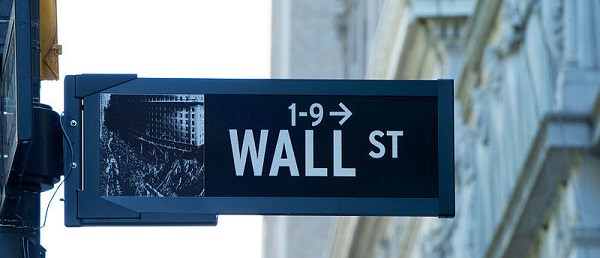

From the Daily Caller News Foundation
By Jason Isaac
The Trump administration’s recent move to revoke Biden-era restrictions on energy development in Alaska’s North Slope—especially in the Arctic National Wildlife Refuge (ANWR)—is a long-overdue correction that prioritizes American prosperity and energy security. This regulatory reset rightly acknowledges what Alaska’s Native communities have long known: responsible energy development offers a path to economic empowerment and self-determination.
But while Washington’s red tape may be unraveling, a more insidious blockade remains firmly in place: Wall Street.
Despite the Trump administration’s restoration of rational permitting processes, major banks and insurance companies continue to collude in starving projects of the capital and risk management services they need. The left’s “debanking” strategy—originally a tactic to pressure gun makers and disfavored industries—is now being weaponized against American energy companies operating in ANWR and similar regions.
Dear Readers:
As a nonprofit, we are dependent on the generosity of our readers.
Please consider making a small donation of any amount here. Thank you!
This quiet embargo began years ago, when JPMorgan Chase, America’s largest bank, declared in 2020 that it would no longer fund oil and gas development in the Arctic, including ANWR. Others quickly followed: Goldman Sachs, Wells Fargo, and Citigroup now all reject Arctic energy projects—effectively shutting down access to capital for an entire region.
Insurers have joined the pile-on. Swiss Re, AIG, and AXIS Capital all publicly stated they would no longer insure drilling in ANWR. In 2023, Chubb became the first U.S.-based insurer to formalize its Arctic ban.
These policies are not merely misguided—they are dangerous. They hand America’s energy future over to OPEC, China, and hostile regimes. They reduce competition, drive up prices, and kneecap the very domestic production that once made the U.S. energy independent.
This isn’t just a theoretical concern. I’ve experienced this discrimination firsthand.
In February 2025, The Hartford notified the American Energy Institute—an educational nonprofit I lead—that it would not renew our insurance policy. The reason? Not risk. Not claims. Not underwriting. The Hartford cited our Facebook page.
“The reason for nonrenewal is we have learned from your Facebook page that your operations include Trade association involved in promoting social/political causes related to energy production. This is not an acceptable exposure under The Hartford’s Small Commercial business segment’s guidelines.”
That’s a direct quote from their nonrenewal notice.
Let’s be clear: The Hartford didn’t drop us for anything we did—they dropped us for what we believe. Our unacceptable “exposure” is telling the truth about the importance of affordable and reliable energy to modern life, and standing up to ESG orthodoxy. We are being punished not for risk, but for advocacy.
This is financial discrimination, pure and simple. What we’re seeing is the private-sector enforcement of political ideology through the strategic denial of access to financial services. It’s ESG—Environmental, Social, and Governance—gone full Orwell.
Banks, insurers, and asset managers may claim these decisions are about “climate risk,” but they rarely apply the same scrutiny to regimes like Venezuela or China, where environmental and human rights abuses are rampant. The issue is not risk. The issue is control.
By shutting out projects in ANWR, Wall Street ensures that even if federal regulators step back, their ESG-aligned agenda still moves forward—through corporate pressure, shareholder resolutions, and selective financial access. This is how ideology replaces democracy.
While the Trump administration deserves praise for removing federal barriers, the fight for energy freedom continues. Policymakers must hold financial institutions accountable for ideological discrimination and protect access to banking and insurance services for all lawful businesses.
Texas has already taken steps by divesting from anti-energy financial firms. Other states should follow, enforcing anti-discrimination laws and leveraging state contracts to ensure fair treatment.
But public pressure matters too. Americans need to know what’s happening behind the curtain of ESG. The green financial complex is not just virtue-signaling—it’s a form of economic coercion designed to override public policy and undermine U.S. sovereignty.
The regulatory shackles may be coming off, but the private-sector blockade remains. As long as banks and insurers collude to deny access to capital and risk protection for projects in ANWR and beyond, America’s energy independence will remain under threat.
We need to call out this hypocrisy. We need to expose it. And we need to fight it—before we lose not just our energy freedom, but our economic prosperity.
The Honorable Jason Isaac is the Founder and CEO of the American Energy Institute. He previously served four terms in the Texas House of Representatives.
-

 COVID-192 days ago
COVID-192 days agoStudy finds nearly half of ‘COVID deaths’ had no link to virus
-
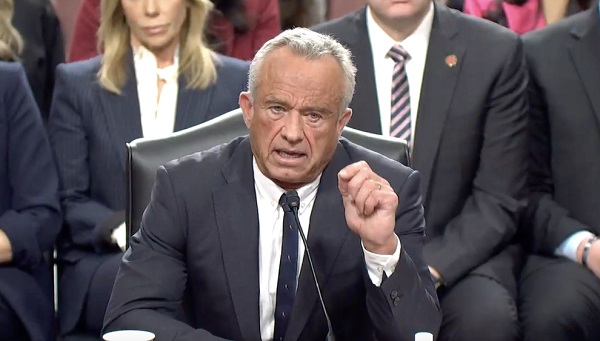
 Autism1 day ago
Autism1 day agoNIH, CMS partner on autism research
-
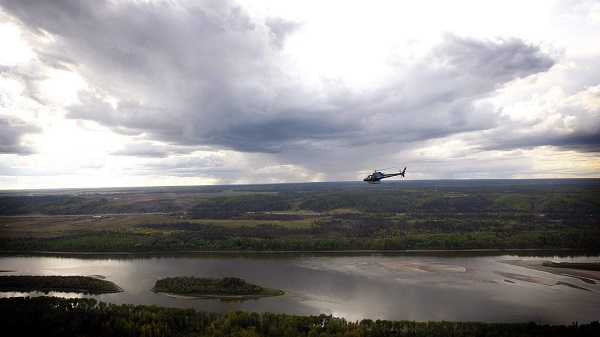
 Alberta2 days ago
Alberta2 days agoEnergy projects occupy less than three per cent of Alberta’s oil sands region, report says
-

 Energy2 days ago
Energy2 days agoOil tankers in Vancouver are loading plenty, but they can load even more
-

 Alberta2 days ago
Alberta2 days agoCharges laid in record cocaine seizure
-

 2025 Federal Election1 day ago
2025 Federal Election1 day agoCarney says Liberals won’t make voting pact with NDP
-

 Business1 day ago
Business1 day agoInnovative Solutions Like This Plan To Provide Power For Data Centres Will Drive Natural Gas Demand For Decades
-

 Energy2 days ago
Energy2 days agoCarney’s energy superpower rhetoric falls flat without policy certainty
